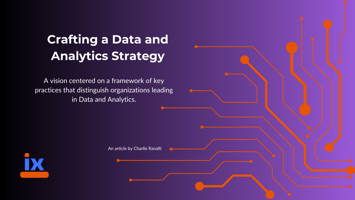Expanding Collaborations in Research Software Engineering
Over the past decade, I’ve worked with research and software in multiple roles. I noticed common needs that researchers have and learned how professionals like me can help. Whether you are in academia or not, if you need software for any kind of research, this article is for you. Drawing from my experience over the past decade, I’ll share what common needs I’ve seen. Then I’ll argue that one cost-effective way to meet those needs is through the temporary support of an external team of Research Software Engineers (RSEs). You won’t just get better software—you’ll also get better research.
My experience
From universities to think tanks, I’ve developed research software in multiple projects:
- My PhD at the UQ,
- A postdoc at the STRI,
- ForestGEO at the Smithsonian NMNH,
- PACTA for Banks at Theia Finance Labs (now at RMI), and
- TILT also at Theia Finance Labs.
I learned that despite great efforts, most projects faced unclear goals, inefficient workflows, and missed deadlines.
I’ve also helped researchers develop software themselves: a) as an instructor for The Carpentries, b) as an associate editor for rOpenSci’s software review program, and c) as a mentor for rOpenSci’s Champions Program. I noticed that even the most experienced researchers benefited from training and empathetic support.
Now I’m at ixpantia, bringing it all together. Alongside colleagues with diverse backgrounds, I’m helping researchers take their work to the next level. I believe in what Simon Hettrick (Director of Strategy at the Software Sustainability Institute) once said: “A Research Software Engineer who has learned the best ideas from industry and academia will be a benefit to both domains.”
But wait, is “RSE” a new thing?
RSE is not really a new thing. RSEs are everywhere, but you may not have heard that specific term. Let’s summarize the not-so-brief history of Research Software Engineers.
The term RSE was born in 2012 at a meeting in Queen's College Oxford, where academics tackled the lack of career paths for software developers in research. This group coined the term to highlight those skilled in both software and research, kicking off campaigns, workshops, and publications to raise awareness and build a community. Institutions like UCL and the University of Manchester led the way by creating the first research software groups offering researchers scalable, cost-effective support and giving RSEs stable careers. Backed by industry leaders like Microsoft and Google, the movement showed that well-engineered software is critical for advancing research.
A related movement was that of Open Source Program Offices (OSPOs). An OSPO is a dedicated office within an organization that manages and promotes the use of open-source software. Its main functions include coordinating contributions to open-source projects and fostering a culture of collaboration.
The first OSPOs emerged in the early 2000s—as open-source software became more prevalent in organizations. They started in technology companies in the USA and Europe and expanded to various regions and industries. Today, OSPOs spread globally, from companies like Google to academic institutions such as the University of California.
Through RSEs and OSPOs researchers now have great resources at hand.
How Can We Help?
At ixpantia, we're eager to help. Our team combines experience from both academia and industry. We’re in a great position to offer you a broad solution space. Our service spans the entire lifecycle of research projects – covering the design, implementation, testing, and maintenance of software, as well as training, mentoring, and feedback for teams.
Concretely, here’re some ways we can help:
- Packaging: We can transform your scripts into robust software packages in R or Python to make your research software reproducible and publishable.
- Software Carpentry Training: We can train your team in the programming skills that add the most value to your research.
- Software Review: We can review your software using the standards developed by rOpenSci and pyOpenSci.
- Mentoring: We can onboard your new hires and help you select your software stack—such as a programming language, an Integrated Development Environment (IDE), and a cloud provider.
Conclusion
Many researchers have your same needs. RSEs can help you—from inside your institution and beyond. At ixpantia, we have RSEs with vast experience in both academia and industry. Let’s connect to discuss the most cost-effective way to add value to your research.



